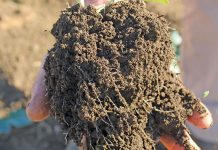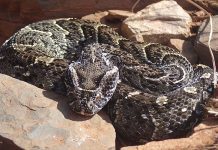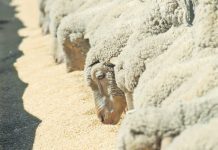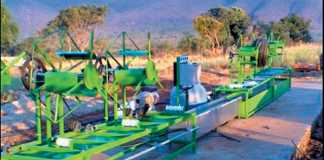When Isak Fick discovered masses of termite colonies on his farm his response was, “Destroy my house and I will destroy yours.”
When the insects moved in under his house, Isak dug them out and filled their nests with Temik. “But they only moved their nests by a few metres and came back with a vengeance,” he recalls.
After many failures, Isak called in an expert. But to his surprise, he was advised of the benefits termites offer to the soil. “I took a good look at my orchards and realised that wherever there were termites, the trees closest to their nests were flourishing.”
Isak explains that termites are great compost producers so wherever they are, the soil is in a good condition. “Having termites in the orchard works better than applying your own compost – and it’s free,” he points out.
“I can see the difference from one tree to the next, depending on its proximity to a termite nest. At first I thought it was due to different soil types, but I realised that the bigger the termite nest around the roots, the healthier the tree looked.”
Managing termites
However, Isak warns, “Termites can be very destructive and they can easily destroy an entire tree in a day, so it is important to manage them.” Termites will eat anything dry, so the trees must be kept moist.
“The sun bakes the bark dry, so as a precaution I paint the tree trunks with regular PVA paint, which discourages the insects from eating the bark.
“As soon as the termites have produced enough compost and the trees are flourishing, I remove the queen from the nest and the termites disappear. This is a very effective and safe way to get rid of them, and doesn’t compromise the ground water as using poison does.”
Isak says that to find the queen you must dig until you get to a honeycomb-like structure, which is where the queen resides. “This is however, not a permanent solution and the termites return after about 18 months, so you have to keep an eye on the orchard,” he warns.
Improved yield
Isak’s farm is 56ha, of which 22ha are planted with 400 litchi trees, 7 000 mango trees and 2 700 macadamia nut trees. He says that the mangoes seem to benefit the most from the termites. The Tommy Atkins variety often produces mangoes up to 1,6kg each, while the average is about 900g each.
“Keeping the termites has really paid off,” he says. “This is an organic farm so we have to use everything at our disposal. The termites are here so we might as well work with them. They certainly work for us.”
Contact Isak Fick on 083 675 3142.
Caption:
Once the termites start making their mark on the trees they need to be removed or the tree will die.
LINDI VAN ROOYEN













